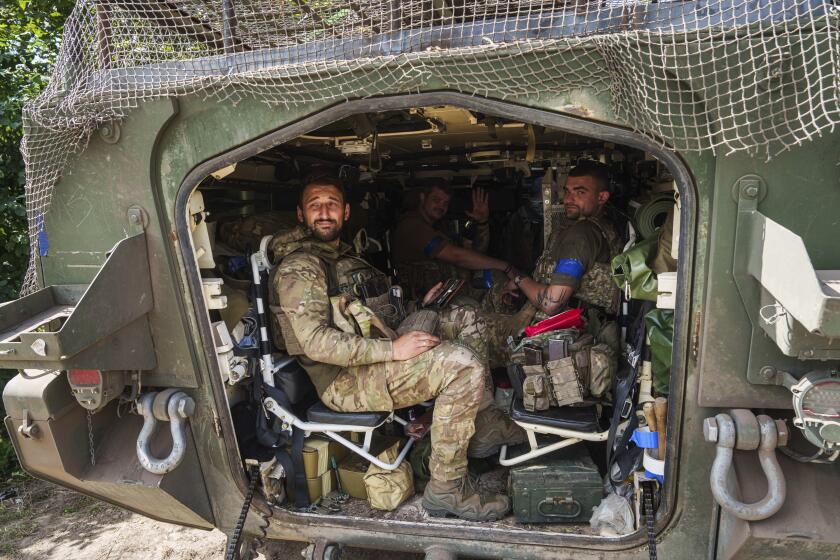Look to Law, Not Leaders
A three-judge appeals panel got it right Thursday when it ruled that President Bush cannot hold an American citizen who has not been charged with a crime. The ruling came after a Virginia federal appeals court reached the opposite conclusion last summer on the rights of another American-born terrorism suspect, a decision that already has landed in the Supreme Court’s lap. These conflicting rulings may tempt the high court justices to defer to the president; they shouldn’t. Americans derive rights as citizens from the Constitution, not at the president’s largess.
In a forceful 2-1 ruling, the U.S. 2nd Circuit Court of Appeals ordered officials to release Jose Padilla within 30 days from the military brig where he has been held for 18 months. The government can still transfer him to civilian authorities and bring charges against him, the New York panel said, but Padilla must get “the constitutional protections [that are] extended to other citizens.”
FBI agents arrested Padilla at O’Hare Airport in May 2002, suspecting he was plotting to detonate a radioactive bomb. The 31-year-old Brooklyn native has been in a Charleston, S.C., brig cell since then, subject to continuing interrogation. He’s been allowed no contact with his family or lawyer.
Bush administration lawyers insist that as commander in chief, the president has the unilateral and inherent power to detain American citizens indefinitely during wartime and that civilian courts have no authority to intervene. The New York appeals panel demolished that argument, ruling that the Constitution grants only Congress the power to pass legislation abridging individual liberties during national emergencies.
“As this court sits only a short distance from where the World Trade Center once stood, we are as keenly aware as anyone of the threat Al Qaeda poses to our country,” the judges wrote. “But presidential authority does not exist in a vacuum.”
Thursday’s ruling contrasts sharply with the Virginia federal appeals court decision upholding the government’s detention of Louisiana-born Yaser Esam Hamdi, arrested on an Afghanistan battlefield and held for nearly two years as an enemy combatant. Although the New York panel said its ruling on Padilla, arrested on American soil, did not apply to Hamdi, the two decisions set up a conflict that only the Supreme Court can resolve.
Thursday’s carefully reasoned decision gives Bush the opportunity to retreat from an extreme and pernicious policy that even former members of his administration now question.
More to Read
Sign up for Essential California
The most important California stories and recommendations in your inbox every morning.
You may occasionally receive promotional content from the Los Angeles Times.










